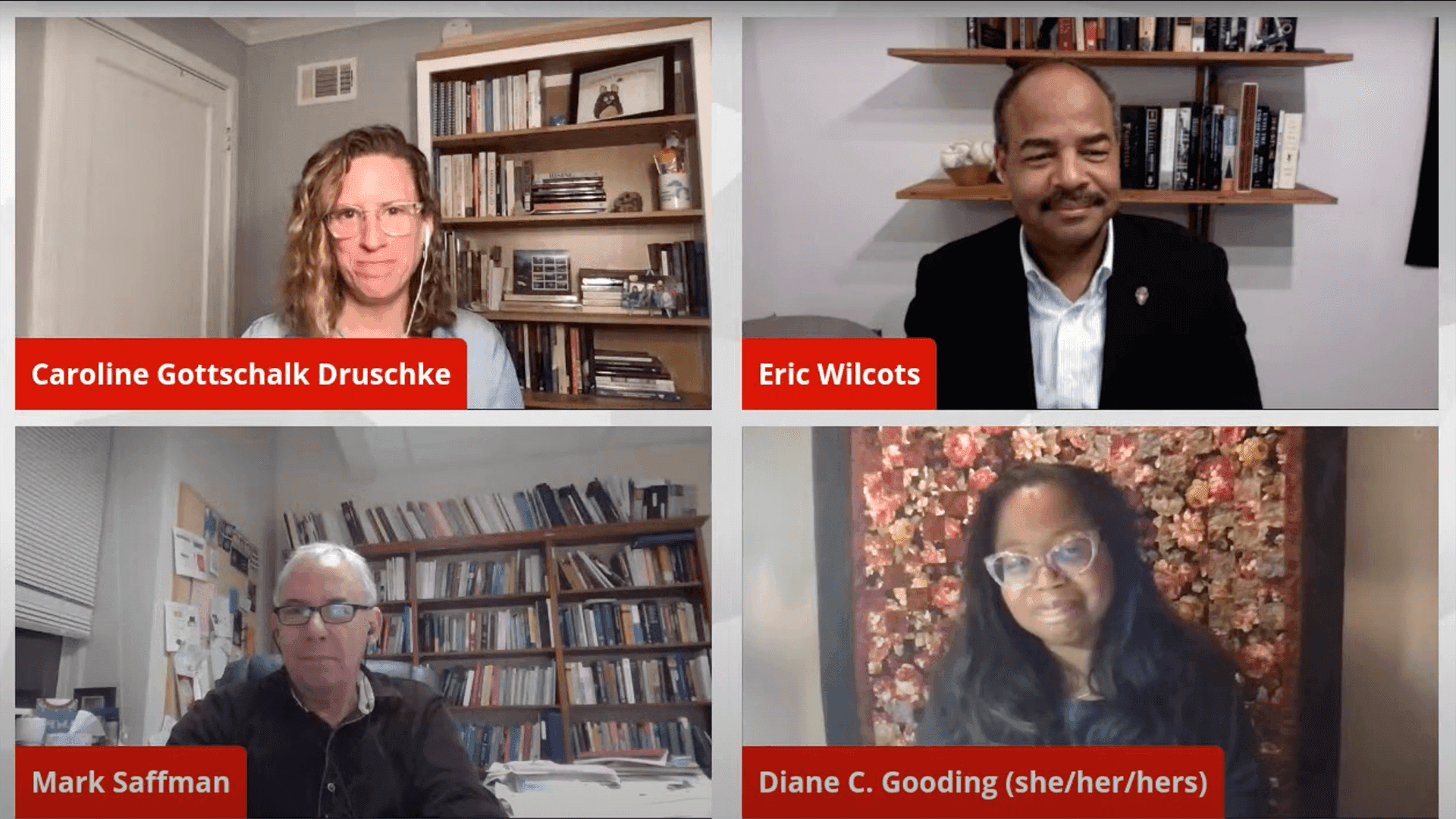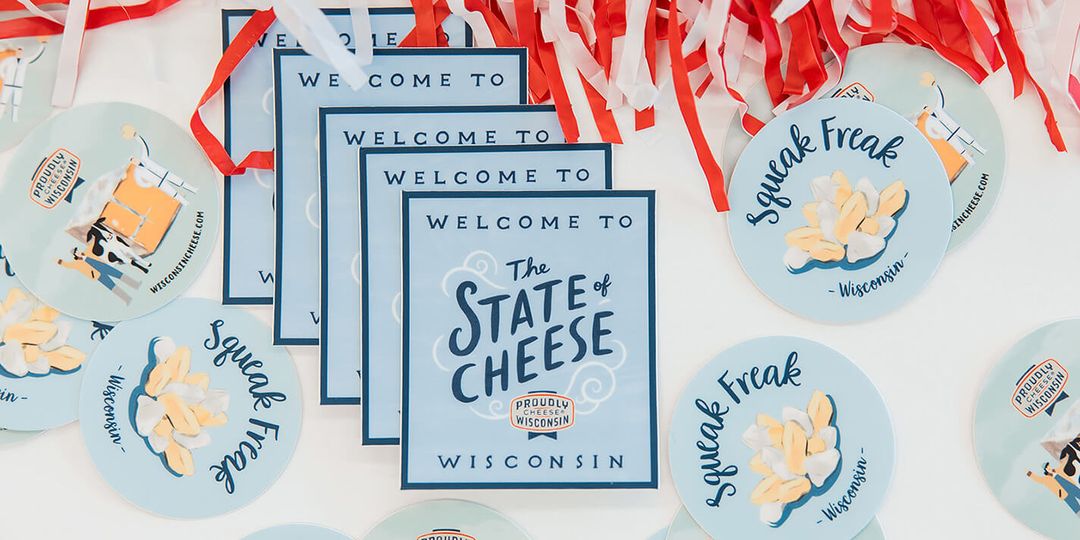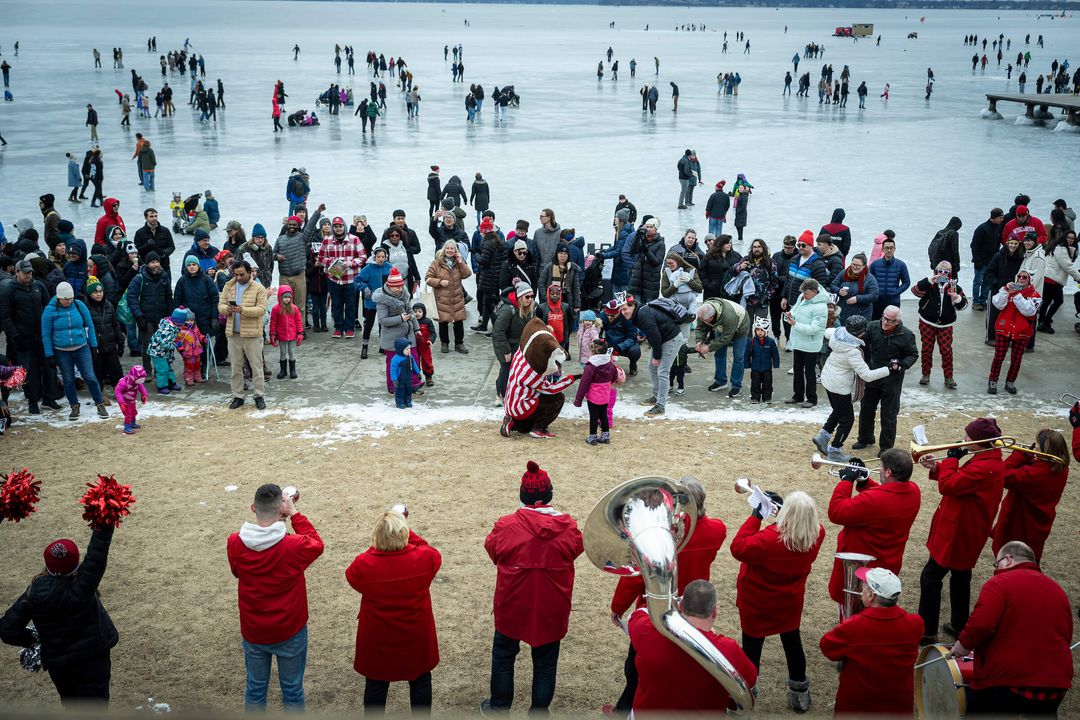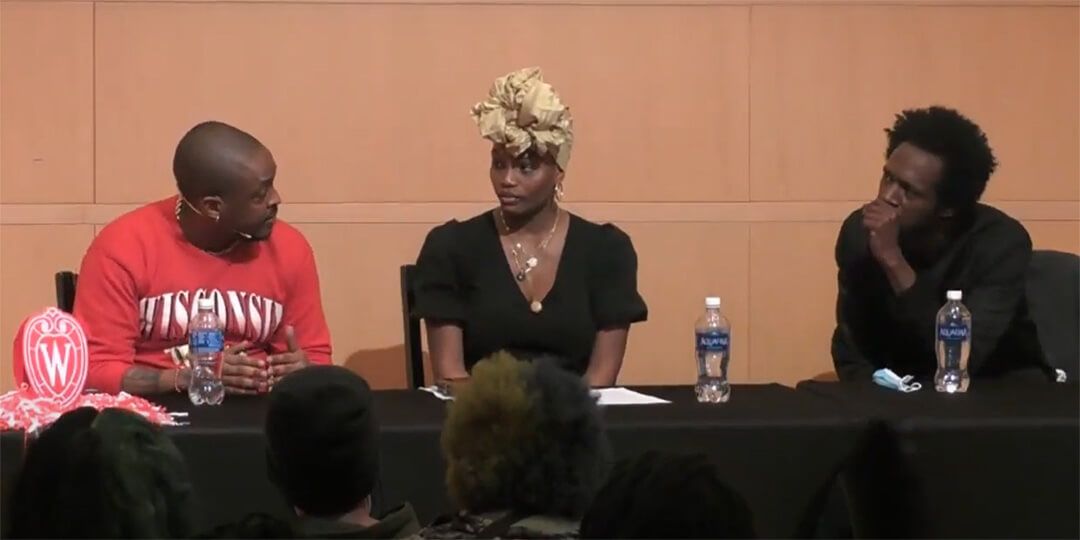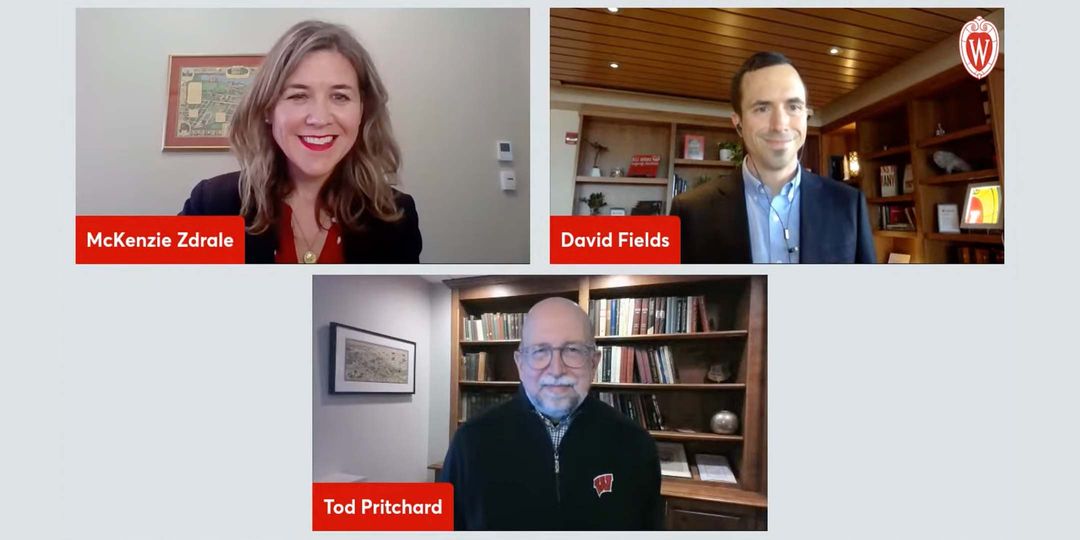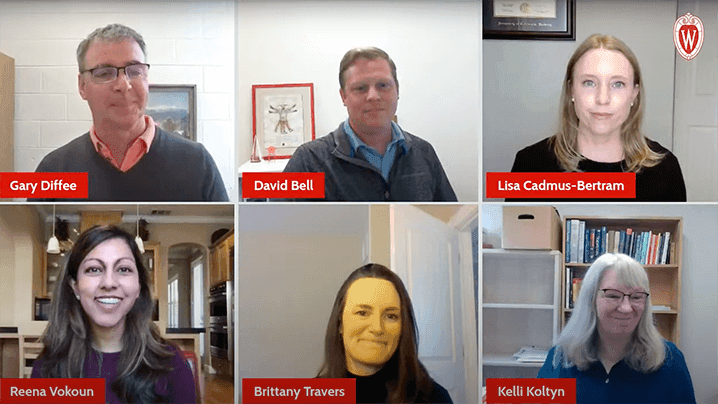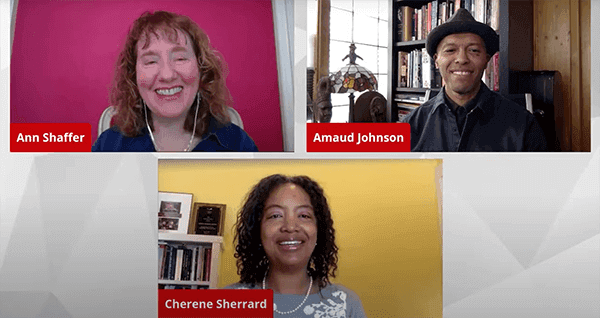MADISON, WI (November 12, 2020) — At this year’s Fueling Discovery online event, UW–Madison alumni and friends joined top UW faculty to explore a range of the College of Letters & Science’s (L&S) curiosity-driven research and its implications for future generations.
A partnership among the Wisconsin State Journal (WSJ), L&S, and the Wisconsin Alumni Association®,Fueling Discovery is an annual event that’s supplemented by a WSJ insert in May each year. This year’s program, moderated by L&S dean Eric Wilcots, welcomed three L&S professors who appeared in the newspaper in May: Diane Gooding, a professor in the UW’s Department of Psychology; Mark Saffman, a professor in the UW’s Department of Physics; and Caroline Gottschalk Druschke, an associate professor in the UW’s Department of English.
In his opening remarks, Dean Wilcots noted the importance of L&S — campus’s largest single unit, making up 45 percent of enrollment — especially during a time when the world faces tremendous challenges. He said the department’s interdisciplinary scholarship and research are positioned to address the many opportunities presented by these challenges, and one way they do so is by embracing the Wisconsin Idea.
“The work that we do must have and should have an impact on the state and the country beyond, and in fact the world as a whole, and you’ll see some of that impact tonight,” Wilcots said, also stating the significance of the department’s curiosity-driven research and its promise for future generations.
“The knowledge, the technology, the understanding that we sometimes take for granted today are rooted in curiosity-driven research and discoveries made years, decades, or even centuries ago,” Wilcots said. “And so, I deeply believe that by fueling discovery today, we are investing in our futures, in our children, and in the world they will inherit.”
Professor Gooding was first to present, outlining her research on identifying risk factors of schizophrenia to help demystify the disorder so it may be detected earlier and better treated. Gooding examines social anhedonia, a reduced ability to experience pleasure or get reward from social interactions. Her research revealed that those with social anhedonia at one point — for example, at the start of their freshman year, she said — were at heightened risk for the development of schizophrenia-related disorders about five years later.
To measure social anhedonia in children and adolescents, Gooding has developed a scale called ACIPS (Anticipatory and Consummatory Interpersonal Pleasure Scale), and she said it’s the first time such a measure has been available for these age groups. By focusing on social anhedonia at earlier points in the lifespan, Gooding hopes to gain more insights about how schizophrenia develops in some vulnerable individuals and how to prevent it.
Next up was Professor Saffman, who presented on his research with quantum computing. He noted that current-day computers, while having made a lot of progress through the years, cannot meet some of today’s biggest challenges. Quantum computing, on the other hand, is a more powerful type of computing, and it offers a new approach that could enable experts to solve such problems, such as designing new medicines, creating new chemicals to improve energy efficiency and decrease pollution, and allow for stronger artificial intelligence.
Lastly, Professor Gottschalk Druschke talked about her research on how language shapes and builds the world, focusing on Wisconsin waters and issues such as stream restoration, watershed management, and flood recovery. Much of the work, she said, is tied to the stories people tell each other about the world they inhabit and the world they hope to build.
Gottschalk Druschke and her students are involved in Stories from the Flood, a community-based project to collect and share stories about frequent and catastrophic flooding in Wisconsin’s rural Kickapoo River and Coon Creek watersheds. The project has helped those affected by the floods process related traumas and create a historical record that will help with future planning and support community healing. UW students working with the project collect and amplify stories of flood-affected residents to get them in conversation with policymakers. Today, these stories have also helped students process their own traumas related to COVID-19 and racial violence, Gottschalk Druschke added.
“Of course, I haven’t been immune to all this either,” she said. “Stories from the Flood has changed me for the better, it’s changed my teaching for the better, it’s changed my research for the better.” The event concluded with a Q & A session with all three UW experts. In addition, Wilcots stated the ongoing need for philanthropic support and reiterated the importance of curiosity-driven research. Click below to watch this profound presentation.
